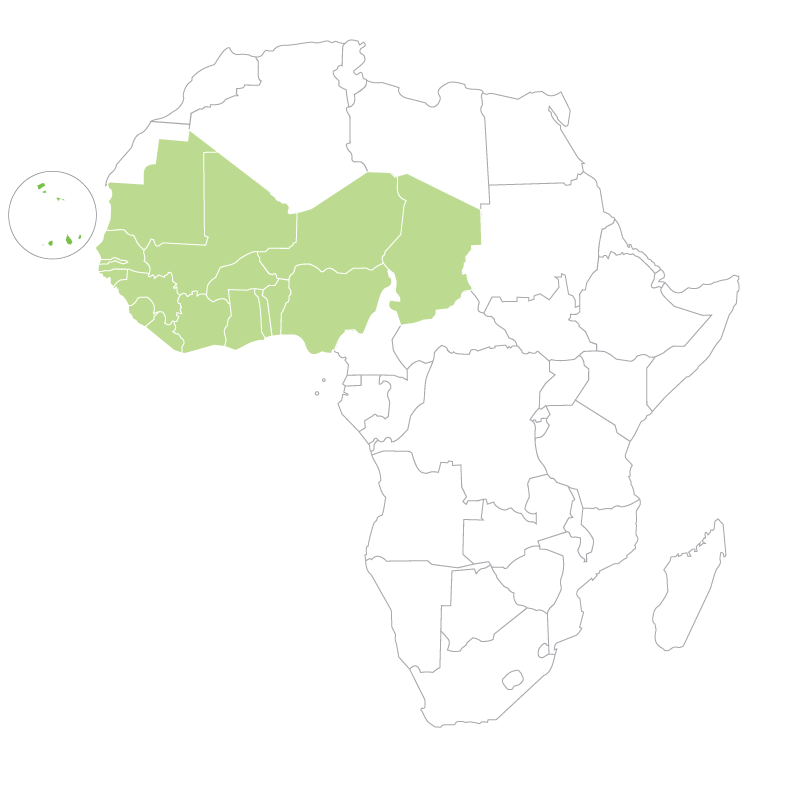P.A.C.C. RRC
Training Programme
Training Programme
Climate Change Adaptation and Disaster Risk Reduction in Agriculture

What is it?
A training program whose aim is the reduction of the impacts of Natural Disaster and Climate Change on the agricultural sector in West Africa.
Target Groups
Experts of National Agriculture, Agro-Meteorological, Hydrological and Early Warning Services.
Beneficiaries
The intervention area of the project are the 17 member states of CILSS/ECOWAS.
The Context

This vulnerability exposes West Africa to crises that can turn into humanitarian disasters. Climate is a key factor in food crises, and the international community has recognized that appropriate forecasts of agricultural production and
food demand could help create national food security stocks and avoid severe famines.
This situation is made even more fragile due to the dependence of agriculture on rainfall, which is typical of these areas, and, at the same time, by an increasing
demand for resources due to high population growth rates.
Outcomes
Training Courses
Enhance the Technical and scientific knowledge on CCA and DRR of the technical services’ staff of the CILSS/ECOWAS member Countries.
Four training courses conducted in Italy and in Niger. Topics include climate change impacts assessment, disaster prevention, and development of agro-meteorological services.
Networking
Strengthen the Regional network that brings together the community of technical services involved in CCA and DRR.
Networking activities such as a networking conference, mentoring and support for regional programs of research and development.
Activities and Outputs
11/2017
IBE-CNR Florence, Italy
CLIMATE SERVICES FOR DISASTER PREVENTION
This training course strengthens the capacities of National Technical Services for disaster risk reduction, through the application of research products and operational tools. The course provides theoretical and practical knowledge on current approaches on detection, monitoring and forecasting on extreme events.
02/2018
AGRHYMET Niamey, Niger
AGROMETEOROLOGICAL SERVICES FOR AGRICULTURE AND WATER USE
This training course strengthens the capabilities of National Technical Services, for a better adaptation to climate change of irrigations systems for agriculture and horticulture. The course provides knowledge on the relationships among soil, water, climate and plants, identify rational techniques of irrigation.
06/2018
IBE-CNR Florence, Italy
METHODOLOGIES FOR CLIMATE CHANGE IMPACT ASSESSMENT
This training course strengthens the capacity of the National Technical Services for a better assessment of climate change and its impacts on agriculture and water resources, to allow better planning and governance.
10/2018
AGRHYMET Niamey, Niger
AGROMETEOROLOGICAL SERVICES FOR RAINFED CROPS
This training course strengthens the technical capacity of the CILSS / ECOWAS countries to provide agro-climatic information and services for rainfed agriculture and appropriate support to use the agroclimatic information along with the decision-making processes.
Project Leaders and partners
The project is led by the World Meteorological Organization. Partners of the project are two Regional Training Centers of WMO, Institute of Biometeorology of the Italian National Research Council (CNR-IBIMET) and the AGRHYMET Regional Center, that will operate with technical and financial support of WMO. The project is funded by the Italian Agency for Development Cooperation (AICS).

